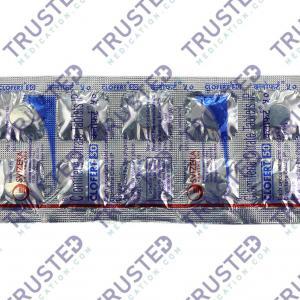
Immunosuppressant drugs keep your immune system in check from damaging healthy cells and tissues. Those who had organ transplants and stem cell transplants use these medicines to prevent transplant rejections. The drugs also treat autoimmune disease symptoms.
What is the Purpose of Immunosuppressant Drugs?
An autoimmune disease causes the immune system to mistakenly interpret healthy tissue for foreign invaders. It turns against the body and attacks it and leading to different types of autoimmune conditions. Immunosuppressants hold back the immune system, helping to prevent cell damage and inflammation. These drugs minimize symptoms and put the condition into remission.
Side effects of Immunosuppressant Drugs

A serious side effect of these drugs is an increased risk of infection, specifically blood, skin, a fungal, or respiratory infection. The risk of infection depends on your autoimmune disease, and the specific immunosuppressant you may be taking to increase the risk of cancer is another long-term complication of these drugs. Side effects vary depending on the medicine drugs. Some of the more common side effects of these drugs include:
- Hyperlipidemia
- Hyperglycemia and on the set of type 2 diabetes
- Insomnia
- Irritability, mood changes, and depression
- Gastrointestinal issues such as diarrhea, nausea, vomiting, and abdominal pain
- Fatigue
- Bone loss
- Weight gain
- Skin rashes
- Tremors
- Headaches
This medicine may reduce your ability to fight infections, so it is necessary to consult your healthcare provider right away if you experience chills, fever, flu-like symptoms, or have a cold or cough. Despite the benefits of these drugs in treating autoimmune diseases, these medications are not without side effects and risks.
By reducing your immune response, immunosuppressive agents weaken your body’s ability to fight off other infections and diseases. When it comes to mind, though, that because these drugs reduce immune response, you can have an infection without noticing typical symptoms of illness, so check in with your provider if you feel off in any way.
The Role of Immunosuppressant Drugs on Organ Transplant
For people who get organ transplants, immunosuppressants help prevent organ rejection. Your immune system may perceive the new organ as a threat and will try to destroy it. Immunosuppressants control this response, protecting the new organ. The medication dosage may decrease over time as your immune system adjusts to the new organ.
Are Immunosuppressants Allowed for Pregnant and Breastfeeding?
Talk to your doctor if you are pregnant or planning to become pregnant because these medicines may cause birth defects. Discuss with your doctor the risk and benefits if you are breastfeeding. This medication offers lifesaving benefits for many people. But suppressing your immune system can lead to side effects and increase your risk of health complications.
Your doctor will carefully monitor your condition and check for medication side effects. You may change medicines or dosage amounts to get the most effective treatment with the least problems. Let your provider know if you experience life-concerning side effects or if the medicine does not alleviate your condition.
Prescribed Immunosuppressant for Organ Transplant
Pangraf. It is prescribed during an organ transplant. It works by suppressing the function of the immune system during organ transplantation. Organ transplant is the last treatment opted for for end-stage organ failures like the heart and liver.
How Do You Take Pangraf?
This medication has powerful effects, so ensure to take it at the same time each day as per the doctor’s prescription. You can take this by mouth with or without a meal. To prevent the immune system from attacking the transplanted organ, ensure that you avoid missing a dose or taking two dosages altogether.
What are the Side Effects of Pangraf?

- Irregular periods and rashes
- Abdominal problems
- Infections and urogenital conditions
- Fever and vertigo
- Headache
- Insomnia
- Diarrhea
- Nausea and vomiting









